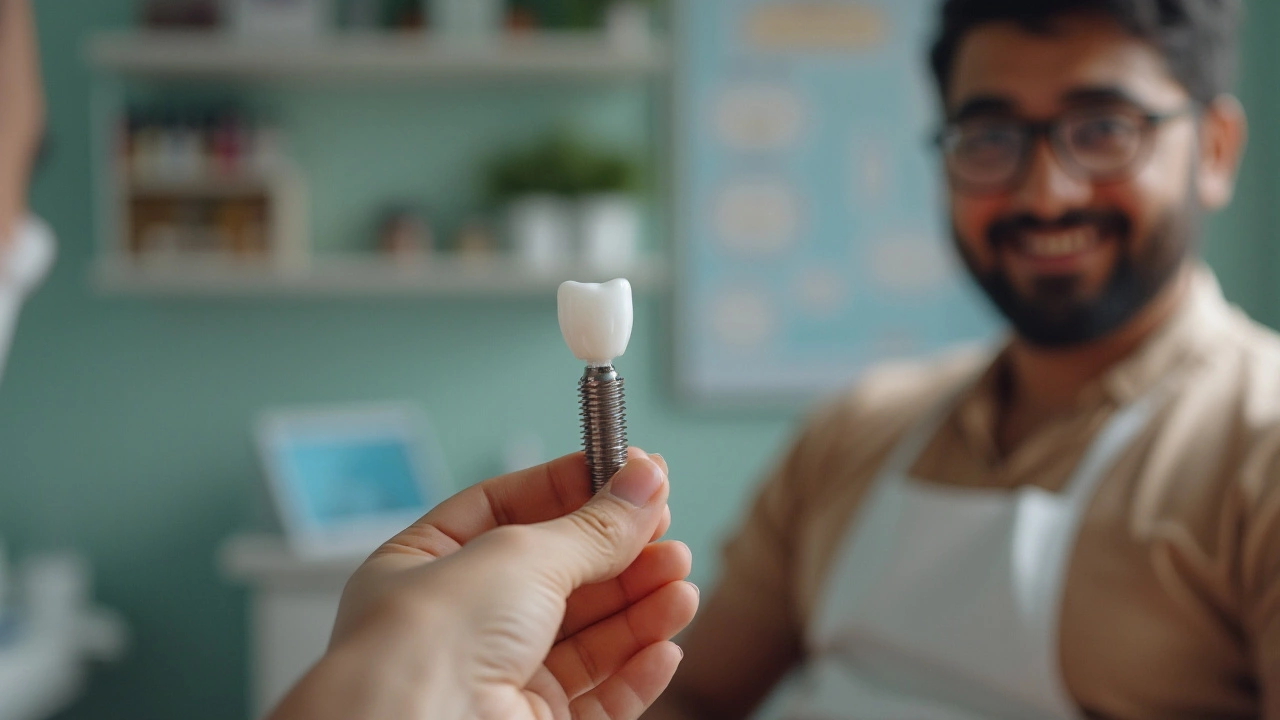Understanding Implant Lifespan: How Long Do Implants Really Last?
Whether you're thinking about a knee replacement, a dental implant, or a spinal rod, the big question is always the same – how long will it last? Most people expect a new implant to be a set‑and‑forget solution, but reality is a bit more nuanced. In this guide we’ll break down the factors that decide an implant’s lifespan, show you the warning signs of wear, and give you easy steps to stretch that clock as far as possible.
What Determines How Long an Implant Stays Strong?
First off, the material matters. Titanium, cobalt‑chrome, and certain ceramics have proven track records for resisting corrosion and wear. That’s why knee and hip replacements often hit the 15‑ to 20‑year mark. Dental implants made of pure titanium can last a lifetime if the bone stays healthy.
Second, the surgical technique is a hidden hero. A well‑aligned joint replacement distributes forces evenly, reducing stress on the bearing surfaces. Misalignment can cause premature loosening, sometimes in just a few years.
Third, your own body plays a huge role. Age, bone density, and overall health affect how the implant integrates. People with osteoporosis or high activity levels may see faster wear. Smoking, uncontrolled diabetes, or chronic inflammation can also speed up degradation.Fourth, the type of activity you do matters. High‑impact sports like basketball or mountain biking put more load on joint implants than walking or swimming. Dental implants react to chewing forces, so a diet heavy on hard candy can increase risk of micro‑fractures.
Finally, infection is a silent thief. Even a tiny infection can loosen an implant’s grip on bone, forcing an early revision. Good hygiene, proper wound care, and timely antibiotics are key.
Tips to Extend the Life of Your Implant
Keep regular check‑ups. A yearly X‑ray or clinical exam can catch early loosening before you feel pain. Your surgeon can suggest minor adjustments that save years of wear.
Maintain a healthy weight. Extra pounds mean extra stress on joint implants; shedding even a few kilos can lower the load dramatically.
Stay active, but choose low‑impact moves. Swimming, cycling, or brisk walking keep muscles strong without hammering the joint. If you love high‑impact sports, talk to your doc about protective gear or a different implant type.
For dental implants, practice good oral hygiene. Brush twice a day, floss, and visit your dentist every six months. Avoid smoking – it impairs bone healing and shortens implant life.
Watch out for warning signs. Sudden pain, swelling, a grinding noise, or a feeling that the joint is unstable? Those are red flags that the implant might be loosening or wearing out.
If you notice these symptoms, don’t wait. Early revision surgery is usually easier and more successful than waiting until the implant fails completely.
Lastly, keep your medications in check. Some drugs, like long‑term steroids, can weaken bone around the implant. Always discuss any new prescription with your surgeon.
Implants are marvels of modern medicine, but they’re not indestructible. By understanding what influences their lifespan and taking a few practical steps, you can keep your knee, hip, or smile working smoothly for many years. Got more questions? Talk to your orthopedic surgeon or dentist – they’ll tailor advice to your exact situation.






